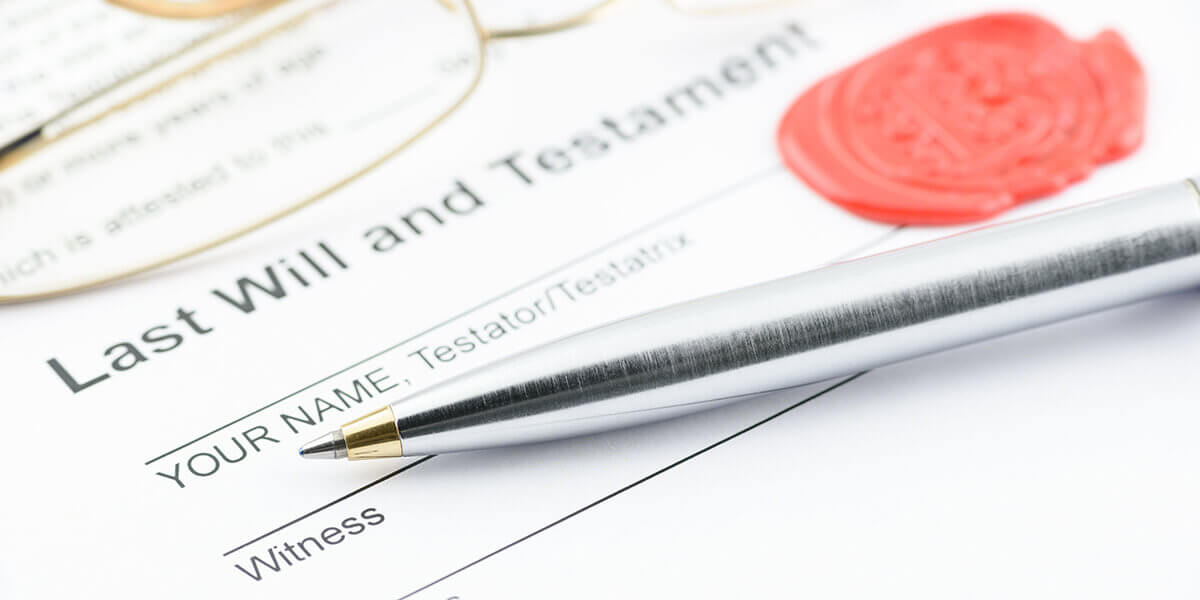An Act Declaring the Rights and Liberties of the Subject and Settling the Succession of the Crown
Whereas the Lords Spiritual and Temporal and Commons assembled at Westminster, lawfully, fully and freely representing all the estates of the people of this realm, did upon the thirteenth day of February in the year of our Lord one thousand six hundred eighty-eight [old style date] present unto their Majesties, then called and known by the names and style of William and Mary, prince and princess of Orange, being present in their proper persons, a certain declaration in writing made by the said Lords and Commons in the words following, viz.:
Whereas the late King James the Second, by the assistance of divers evil counsellors, judges and ministers employed by him, did endeavour to subvert and extirpate the Protestant religion and the laws and liberties of this kingdom;
By assuming and exercising a power of dispensing with and suspending of laws and the execution of laws without consent of Parliament;
By committing and prosecuting divers worthy prelates for humbly petitioning to be excused from concurring to the said assumed power;
By issuing and causing to be executed a commission under the great seal for erecting a court called the Court of Commissioners for Ecclesiastical Causes;
By levying money for and to the use of the Crown by pretence of prerogative for other time and in other manner than the same was granted by Parliament;
By raising and keeping a standing army within this kingdom in time of peace without consent of Parliament, and quartering soldiers contrary to law;
By causing several good subjects being Protestants to be disarmed at the same time when papists were both armed and employed contrary to law;
By violating the freedom of election of members to serve in Parliament;
By prosecutions in the Court of King’s Bench for matters and causes cognizable only in Parliament, and by divers other arbitrary and illegal courses;
And whereas of late years partial corrupt and unqualified persons have been returned and served on juries in trials, and particularly divers jurors in trials for high treason which were not freeholders;
And excessive bail hath been required of persons committed in criminal cases to elude the benefit of the laws made for the liberty of the subjects;
And excessive fines have been imposed;
And illegal and cruel punishments inflicted;
And several grants and promises made of fines and forfeitures before any conviction or judgment against the persons upon whom the same were to be levied;
All which are utterly and directly contrary to the known laws and statutes and freedom of this realm;
And whereas the said late King James the Second having abdicated the government and the throne being thereby vacant, his Highness the prince of Orange (whom it hath pleased Almighty God to make the glorious instrument of delivering this kingdom from popery and arbitrary power) did (by the advice of the Lords Spiritual and Temporal and divers principal persons of the Commons) cause letters to be written to the Lords Spiritual and Temporal being Protestants, and other letters to the several counties, cities, universities, boroughs and cinque ports, for the choosing of such persons to represent them as were of right to be sent to Parliament, to meet and sit at Westminster upon the two and twentieth day of January in this year one thousand six hundred eighty and eight [old style date], in order to such an establishment as that their religion, laws and liberties might not again be in danger of being subverted, upon which letters elections having been accordingly made;
And thereupon the said Lords Spiritual and Temporal and Commons, pursuant to their respective letters and elections, being now assembled in a full and free representative of this nation, taking into their most serious consideration the best means for attaining the ends aforesaid, do in the first place (as their ancestors in like case have usually done) for the vindicating and asserting their ancient rights and liberties declare
That the pretended power of suspending the laws or the execution of laws by regal authority without consent of Parliament is illegal;
That the pretended power of dispensing with laws or the execution of laws by regal authority, as it hath been assumed and exercised of late, is illegal;
That the commission for erecting the late Court of Commissioners for Ecclesiastical Causes, and all other commissions and courts of like nature, are illegal and pernicious;
That levying money for or to the use of the Crown by pretence of prerogative, without grant of Parliament, for longer time, or in other manner than the same is or shall be granted, is illegal;
That it is the right of the subjects to petition the king, and all commitments and prosecutions for such petitioning are illegal;
That the raising or keeping a standing army within the kingdom in time of peace, unless it be with consent of Parliament, is against law;
That the subjects which are Protestants may have arms for their defence suitable to their conditions and as allowed by law;
That election of members of Parliament ought to be free;
That the freedom of speech and debates or proceedings in Parliament ought not to be impeached or questioned in any court or place out of Parliament;
That excessive bail ought not to be required, nor excessive fines imposed, nor cruel and unusual punishments inflicted;
That jurors ought to be duly impanelled and returned, and jurors which pass upon men in trials for high treason ought to be freeholders;
That all grants and promises of fines and forfeitures of particular persons before conviction are illegal and void;
And that for redress of all grievances, and for the amending, strengthening and preserving of the laws, Parliaments ought to be held frequently.
And they do claim, demand and insist upon all and singular the premises as their undoubted rights and liberties, and that no declarations, judgments, doings or proceedings to the prejudice of the people in any of the said premises ought in any wise to be drawn hereafter into consequence or example; to which demand of their rights they are particularly encouraged by the declaration of his Highness the prince of Orange as being the only means for obtaining a full redress and remedy therein. Having therefore an entire confidence that his said Highness the prince of Orange will perfect the deliverance so far advanced by him, and will still preserve them from the violation of their rights which they have here asserted, and from all other attempts upon their religion, rights and liberties, the said Lords Spiritual and Temporal and Commons assembled at Westminster do resolve that William and Mary, prince and princess of Orange, be and be declared king and queen of England, France and Ireland and the dominions thereunto belonging, to hold the crown and royal dignity of the said kingdoms and dominions to them, the said prince and princess, during their lives and the life of the survivor to them, and that the sole and full exercise of the regal power be only in and executed by the said prince of Orange in the names of the said prince and princess during their joint lives, and after their deceases the said crown and royal dignity of the same kingdoms and dominions to be to the heirs of the body of the said princess, and for default of such issue to the Princess Anne of Denmark and the heirs of her body, and for default of such issue to the heirs of the body of the said prince of Orange. And the Lords Spiritual and Temporal and Commons do pray the said prince and princess to accept the same accordingly.
And that the oaths hereafter mentioned be taken by all persons of whom the oaths have allegiance and supremacy might be required by law, instead of them; and that the said oaths of allegiance and supremacy be abrogated.
I, A.B., do sincerely promise and swear that I will be faithful and bear true allegiance to their Majesties King William and Queen Mary. So help me God.
I, A.B., do swear that I do from my heart abhor, detest and abjure as impious and heretical this damnable doctrine and position, that princes excommunicated or deprived by the Pope or any authority of the see of Rome may be deposed or murdered by their subjects or any other whatsoever. And I do declare that no foreign prince, person, prelate, state or potentate hath or ought to have any jurisdiction, power, superiority, pre-eminence or authority, ecclesiastical or spiritual, within this realm. So help me God.
Upon which their said Majesties did accept the crown and royal dignity of the kingdoms of England, France and Ireland, and the dominions thereunto belonging, according to the resolution and desire of the said Lords and Commons contained in the said declaration. And thereupon their Majesties were pleased that the said Lords Spiritual and Temporal and Commons, being the two Houses of Parliament, should continue to sit, and with their Majesties’ royal concurrence make effectual provision for the settlement of the religion, laws and liberties of this kingdom, so that the same for the future might not be in danger again of being subverted, to which the said Lords Spiritual and Temporal and Commons did agree, and proceed to act accordingly. Now in pursuance of the premises the said Lords Spiritual and Temporal and Commons in Parliament assembled, for the ratifying, confirming and establishing the said declaration and the articles, clauses, matters and things therein contained by the force of law made in due form by authority of Parliament, do pray that it may be declared and enacted that all and singular the rights and liberties asserted and claimed in the said declaration are the true, ancient and indubitable rights and liberties of the people of this kingdom, and so shall be esteemed, allowed, adjudged, deemed and taken to be; and that all and every the particulars aforesaid shall be firmly and strictly holden and observed as they are expressed in the said declaration, and all officers and ministers whatsoever shall serve their Majesties and their successors according to the same in all time to come. And the said Lords Spiritual and Temporal and Commons, seriously considering how it hath pleased Almighty God in his marvellous providence and merciful goodness to this nation to provide and preserve their said Majesties’ royal persons most happily to reign over us upon the throne of their ancestors, for which they render unto him from the bottom of their hearts their humblest thanks and praises, do truly, firmly, assuredly and in the sincerity of their hearts think, and do hereby recognize, acknowledge and declare, that King James the Second having abdicated the government, and their Majesties having accepted the crown and royal dignity as aforesaid, their said Majesties did become, were, are and of right ought to be by the laws of this realm our sovereign liege lord and lady, king and queen of England, France and Ireland and the dominions thereunto belonging, in and to whose princely persons the royal state, crown and dignity of the said realms with all honours, styles, titles, regalities, prerogatives, powers, jurisdictions and authorities to the same belonging and appertaining are most fully, rightfully and entirely invested and incorporated, united and annexed. And for preventing all questions and divisions in this realm by reason of any pretended titles to the crown, and for preserving a certainty in the succession thereof, in and upon which the unity, peace, tranquility and safety of this nation doth under God wholly consist and depend, the said Lords Spiritual and Temporal and Commons do beseech their Majesties that it may be enacted, established and declared, that the crown and regal government of the said kingdoms and dominions, with all and singular the premises thereunto belonging and appertaining, shall be and continue to their said Majesties and the survivor of them during their lives and the life of the survivor of them, and that the entire, perfect and full exercise of the regal power and government be only in and executed by his Majesty in the names of both their Majesties during their joint lives; and after their deceases the said crown and premises shall be and remain to the heirs of the body of her Majesty, and for default of such issue to her Royal Highness the Princess Anne of Denmark and the heirs of the body of his said Majesty; and thereunto the said Lords Spiritual and Temporal and Commons do in the name of all the people aforesaid most humbly and faithfully submit themselves, their heirs and posterities for ever, and do faithfully promise that they will stand to, maintain and defend their said Majesties, and also the limitation and succession of the crown herein specified and contained, to the utmost of their powers with their lives and estates against all persons whatsoever that shall attempt anything to the contrary. And whereas it hath been found by experience that it is inconsistent with the safety and welfare of this Protestant kingdom to be governed by a popish prince, or by any king or queen marrying a papist, the said Lords Spiritual and Temporal and Commons do further pray that it may be enacted, that all and every person and persons that is, are or shall be reconciled to or shall hold communion with the see or Church of Rome, or shall profess the popish religion, or shall marry a papist, shall be excluded and be for ever incapable to inherit, possess or enjoy the crown and government of this realm and Ireland and the dominions thereunto belonging or any part of the same, or to have, use or exercise any regal power, authority or jurisdiction within the same; and in all and every such case or cases the people of these realms shall be and are hereby absolved of their allegiance; and the said crown and government shall from time to time descend to and be enjoyed by such person or persons being Protestants as should have inherited and enjoyed the same in case the said person or persons so reconciled, holding communion or professing or marrying as aforesaid were naturally dead; and that every king and queen of this realm who at any time hereafter shall come to and succeed in the imperial crown of this kingdom shall on the first day of the meeting of the first Parliament next after his or her coming to the crown, sitting in his or her throne in the House of Peers in the presence of the Lords and Commons therein assembled, or at his or her coronation before such person or persons who shall administer the coronation oath to him or her at the time of his or her taking the said oath (which shall first happen), make, subscribe and audibly repeat the declaration mentioned in the statute made in the thirtieth year of the reign of King Charles the Second entitled, _An Act for the more effectual preserving the king’s person and government by disabling papists from sitting in either House of Parliament._ But if it shall happen that such king or queen upon his or her succession to the crown of this realm shall be under the age of twelve years, then every such king or queen shall make, subscribe and audibly repeat the same declaration at his or her coronation or the first day of the meeting of the first Parliament as aforesaid which shall first happen after such king or queen shall have attained the said age of twelve years. All which their Majesties are contented and pleased shall be declared, enacted and established by authority of this present Parliament, and shall stand, remain and be the law of this realm for ever; and the same are by their said Majesties, by and with the advice and consent of the Lords Spiritual and Temporal and Commons in Parliament assembled and by the authority of the same, declared, enacted and established accordingly.
II. And be it further declared and enacted by the authority aforesaid, that from and after this present session of Parliament no dispensation by _non obstante_ of or to any statute or any part thereof shall be allowed, but that the same shall be held void and of no effect, except a dispensation be allowed of in such statute, and except in such cases as shall be specially provided for by one or more bill or bills to be passed during this present session of Parliament.
III. Provided that no charter or grant or pardon granted before the three and twentieth day of October in the year of our Lord one thousand six hundred eighty-nine shall be any ways impeached or invalidated by this Act, but that the same shall be and remain of the same force and effect in law and no other than as if this Act had never been made.





